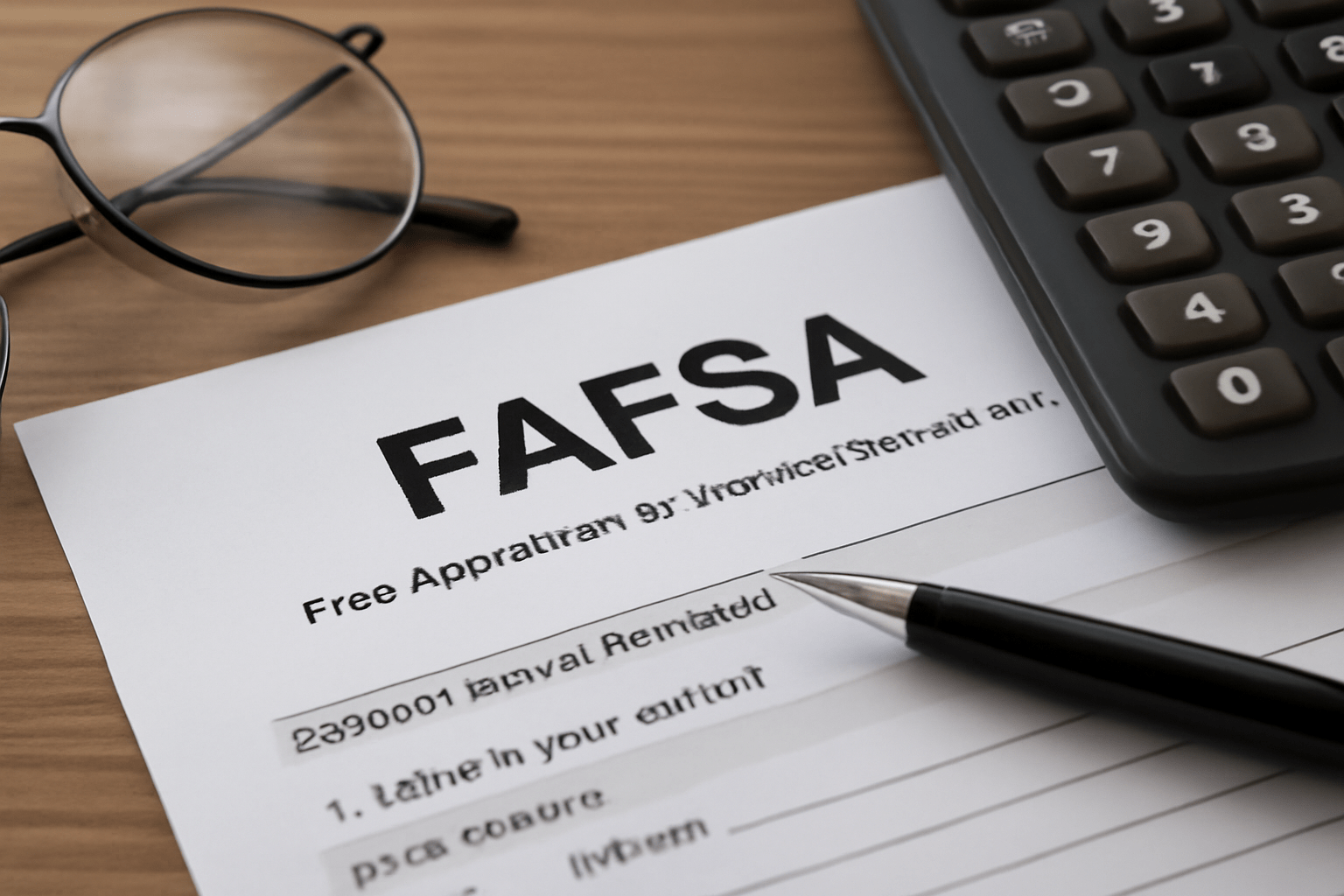Introduction
The FAFSA crisis has hit a staggering $4 billion mark, leaving thousands of families without the financial aid they desperately need for college in 2025. With the ever-growing complexity of the FAFSA (Free Application for Federal Student Aid), many students and their families are finding themselves at a loss, unable to recover unclaimed funds. This crisis is compounded by errors in FAFSA submissions, changes to financial aid rules, and missed deadlines, making the path to securing aid more difficult than ever.
But all hope is not lost. In this article, we will explore the roots of the FAFSA crisis and guide families on how they can still secure the aid they deserve, despite these challenges. From correcting common FAFSA mistakes to understanding new changes for 2025, we’ll provide actionable steps to help families navigate this complicated system and maximize their chances of receiving financial aid.
The $4 Billion FAFSA Crisis
The $4 billion FAFSA crisis stems from a series of administrative errors, including incorrect data entries, missed signatures, and faulty asset calculations, resulting in unclaimed federal grants that could have helped millions of students. For many families, these unclaimed funds represent lost opportunities for securing financial aid.
The primary causes of this issue include:
- Misreporting Income and Assets: Many families make mistakes when reporting their income or assets, leading to delays or denials in aid.
- Incomplete Applications: Some families fail to provide necessary information or don’t complete sections of the FAFSA, resulting in errors that prevent processing.
- Late Submissions: Families that miss the FAFSA deadlines risk not receiving their full aid package or any financial assistance at all.
This crisis has put added pressure on families trying to make college affordable. However, there are ways to recover and fix these mistakes, and families can still take advantage of financial aid resources.
Learn more about FAFSA challenges and how to navigate them.

Common FAFSA Mistakes and How to Fix Them
One of the main reasons for the FAFSA crisis is errors made on applications. Fortunately, most mistakes can be corrected, allowing families to recover lost financial aid.
1. Key FAFSA Mistakes to Avoid
Some of the most common FAFSA mistakes include:
- Incorrect tax information: Failing to report the correct income or tax status.
- Missing signatures: Overlooking the electronic signature or parental signature.
- Reporting wrong assets: Mistakes in reporting savings or investments, which can impact aid eligibility.
2. How to Fix FAFSA Errors
Families should act quickly if they discover mistakes after submitting their FAFSA. Here’s how to correct common errors:
- Fixing Incorrect Information: Log in to your FAFSA account and update the information, especially income or asset details.
- Updating Signatures: Ensure that both the student and the parent (if applicable) sign the form electronically.
- Professional Judgment: If there’s a major financial change not reflected on the FAFSA, consider requesting a professional judgment from the college’s financial aid office.
By staying proactive and fixing mistakes as soon as they’re identified, families can recover missed aid and avoid future issues.
Explore how to appeal financial aid decisions if necessary.
Maximizing FAFSA Aid
In light of the crisis, it’s more important than ever to ensure you’re receiving all the financial aid available. Here’s how to maximize your FAFSA aid:
1. File FAFSA Early
The earlier you submit your FAFSA, the better your chances of securing the maximum financial aid available. Filing early helps avoid missing deadlines and ensures that you’re considered for state and federal aid before funding runs out.
2. Double-Check Financial Information
Accurate financial reporting is critical to securing aid. Make sure to provide the correct tax returns and asset information. Mistakes here can lead to aid rejection or delays.
3. Recover Unclaimed FAFSA Grants
If you missed out on unclaimed grants, check your FAFSA status and request a review of your application. Many students have been able to recover aid after fixing small errors.
To secure all available financial aid, stay on top of your FAFSA status and promptly address any issues that arise.
Read our detailed guide on maximizing financial aid.
Key FAFSA Deadlines and Submission Tips
The FAFSA is time-sensitive, and meeting deadlines is essential to securing aid. Here’s what you need to know:
1. Important Deadlines for 2025
There are several deadlines to keep in mind for the 2025-2026 academic year:
- Federal FAFSA Deadline: Typically, June 30 for the previous year, but states and schools may have earlier deadlines.
- State Deadlines: Some states have their own deadlines for state-specific aid.
- College-Specific Deadlines: Some colleges require earlier FAFSA submissions to be considered for institutional aid or scholarships.
2. When to Submit FAFSA for Maximum Aid
It’s best to submit your FAFSA as early as possible to maximize your chances of receiving aid. Late submissions can result in missed opportunities, especially for state and institutional grants.
Learn more about how to pay for college when your budget is limited.
Stress and Mental Health During FAFSA
The FAFSA process can be overwhelming for families, especially with the added pressure of deadlines and the uncertainty of receiving financial aid. It’s important to manage stress effectively.
1. The Emotional Toll of FAFSA
Many families experience anxiety and stress when navigating FAFSA, often due to the complexities of financial reporting and the uncertainty of securing aid.
2. How to Manage FAFSA Stress
Here are some stress management tips for families:
- Stay Organized: Create a checklist and timeline for each step in the FAFSA process.
- Take Breaks: If you’re feeling overwhelmed, take a step back and return to the task later.
- Ask for Help: If you’re unsure about certain parts of the FAFSA, seek assistance from a financial aid counselor or trusted advisor.
It’s important to take care of your mental health throughout this process and ask for support when needed.
Explore key financial aid questions you should ask.
New FAFSA Changes for 2025
The FAFSA process is undergoing significant changes in 2025. Here’s what you need to know:
1. Simplified FAFSA Form
The 2025 FAFSA will have fewer questions, making it easier for families to fill out. The changes aim to streamline the process, but families will need to be prepared for new eligibility requirements.
2. Changes to Expected Family Contribution (EFC)
The EFC formula will change, affecting how financial aid is calculated. Families should familiarize themselves with these changes to ensure they’re maximizing their aid opportunities.
3. Implications for Families
These changes will make the FAFSA process quicker but may also alter eligibility for certain types of aid. Stay informed about these changes and ensure that your application reflects the new criteria.
Get an in-depth look at the 2025 FAFSA changes.
FAFSA and College Admissions Strategy
The FAFSA is not just about securing financial aid – it’s an integral part of the college admissions process. Here’s how to use FAFSA to your advantage:
1. FAFSA’s Role in College Admissions
Many colleges rely on FAFSA to determine need-based financial aid. This can influence your acceptance into certain schools and eligibility for scholarships.
2. Early Decision and FAFSA
If you’re applying for Early Decision, you’ll need to submit your FAFSA early to ensure you receive the full financial aid package.
3. Maximizing Scholarships with FAFSA
In addition to federal aid, FAFSA plays a key role in securing merit-based scholarships. Ensure that your FAFSA is submitted on time to increase your chances of receiving these awards.
Conclusion and Actionable Steps
The $4 billion FAFSA crisis is a wake-up call for families to become more vigilant when applying for financial aid. While many students have missed out on crucial funds, there’s still time to act. By correcting mistakes, filing early, and staying informed about new changes in the FAFSA process, families can still secure the financial aid they need.
